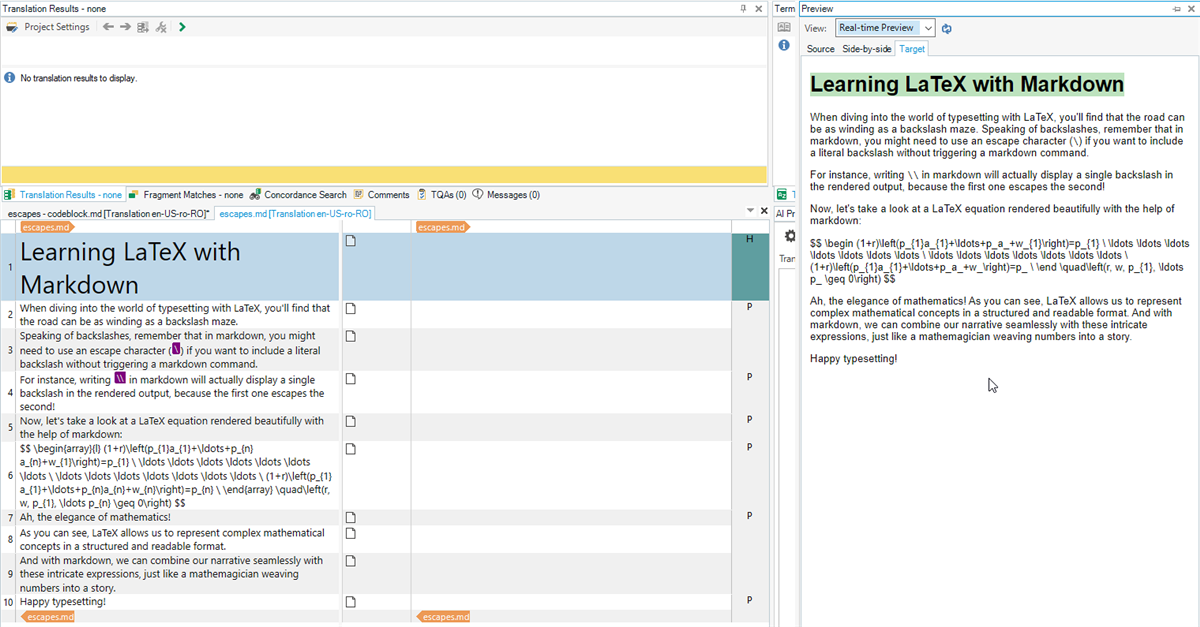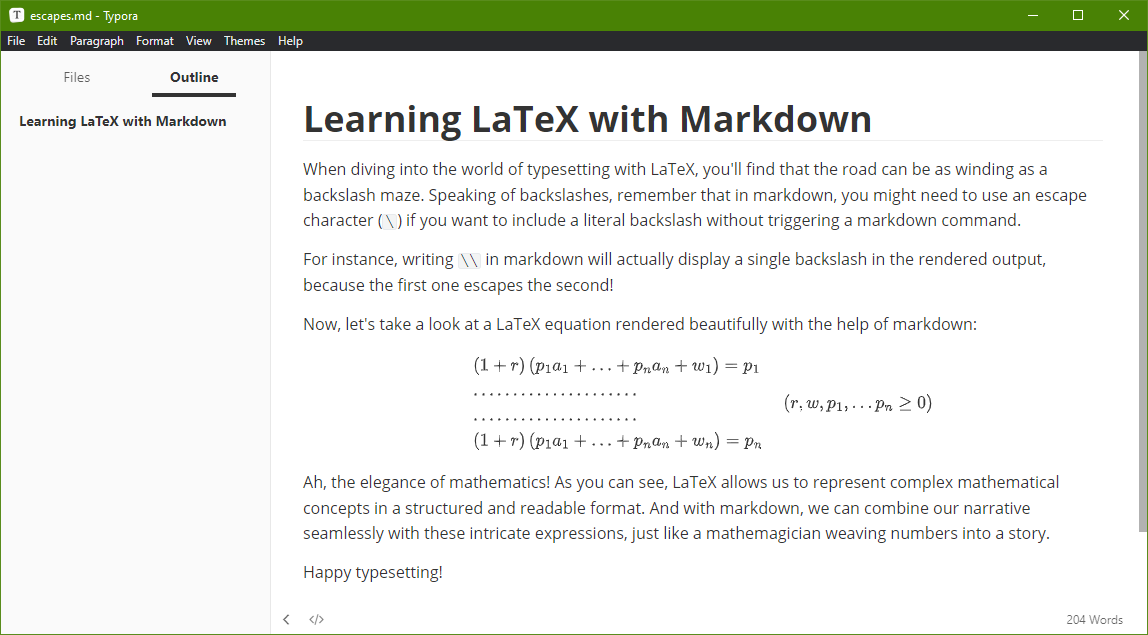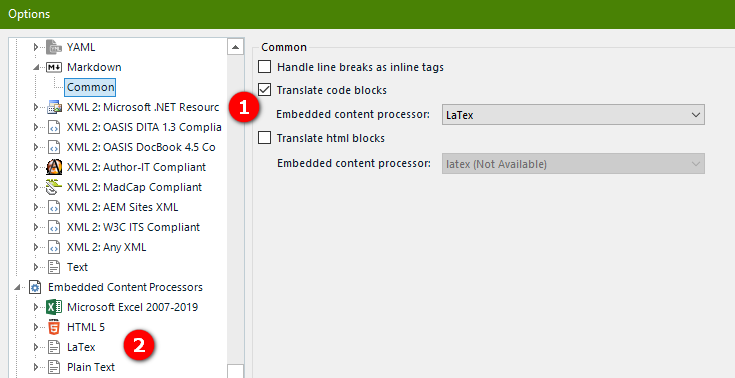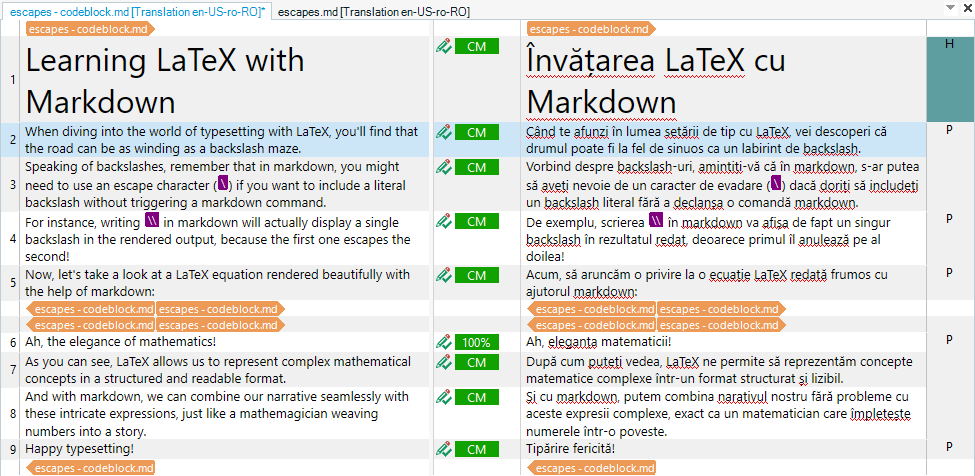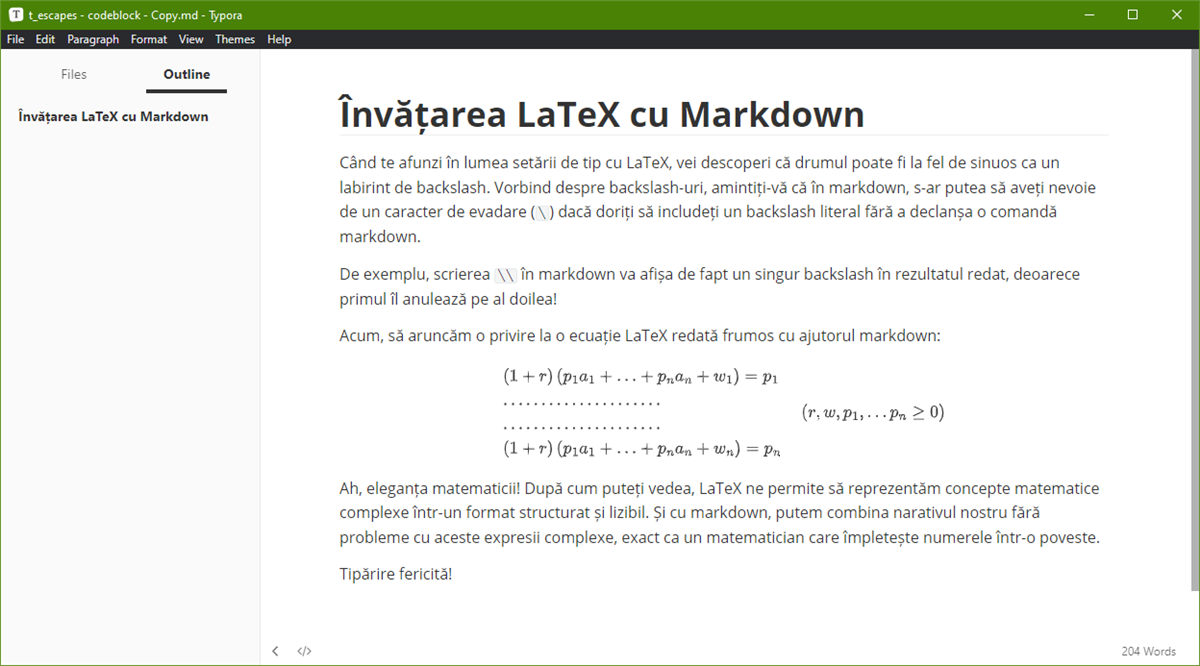I encountered an issue while translating Markdown documents in Trados.
When I export the translated text, all the backslash (\) characters are being converted into double backslashes (\\).
before:

after:

I need to know what is causing this issue and how I should resolve it.
Generated Image Alt-Text
[edited by: Trados AI at 1:36 PM (GMT 0) on 29 Feb 2024]


 Translate
Translate

